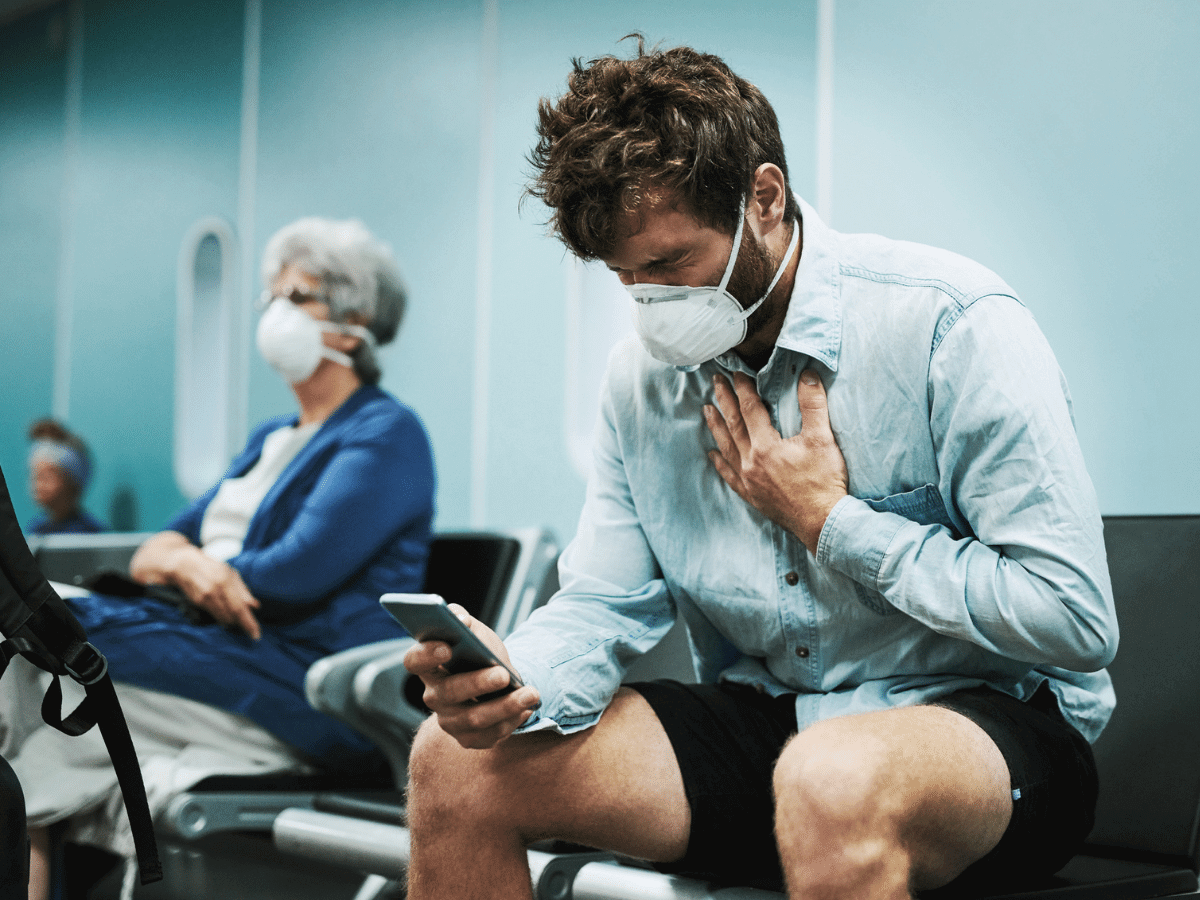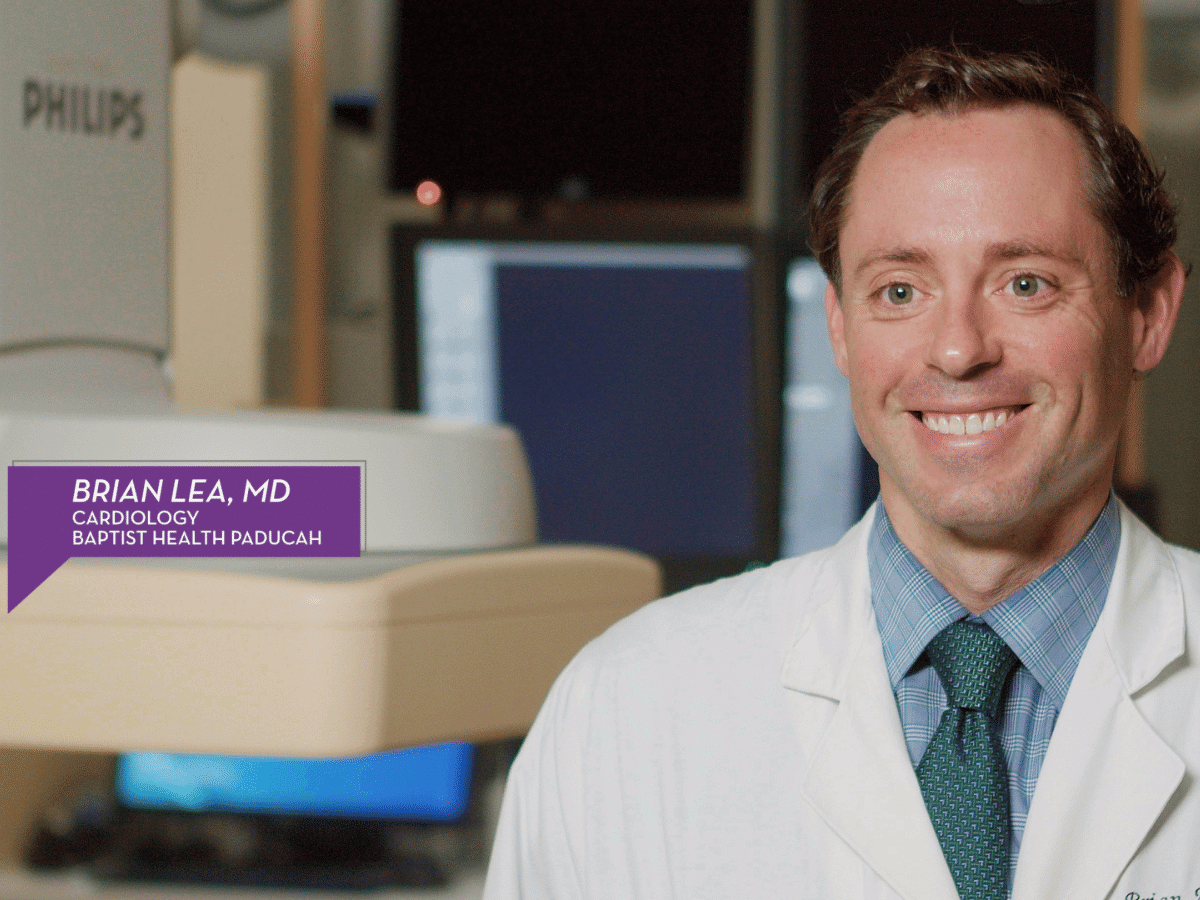How Does COVID-19 Affect the Heart?

Medically reviewed by: Baptist Health
Some people who contract COVID-19 will experience long-term health issues even after they recover from the initial infection. This includes heart-related issues, which can produce symptoms like:
- Chest pain
- Dizziness
- Shortness of breath
- Heart palpitations (sensations of fluttering, pounding, or fast beating)
These problems are not only significant issues themselves, but they can also make it harder to fully recover from COVID-19. For example, they may make you less likely to get the exercise that helps your body recover from the illness.
COVID-19 and Heart Damage
The virus that causes COVID-19 affects the heart and circulatory system in multiple ways. First, the heart has what are called ACE-2 (angiotensin-converting enzyme-2) receptors, and coronavirus can attach to them, inhibiting their role in oxygen transport and causing inflammation and damage to the heart.
COVID-19 also leads to inflammation in the heart (called myocarditis) because of the body’s immune response, and that condition can lead to an increased risk of heart failure in the future. Plus, the virus can cause inflammation in blood vessels and the development of small blood clots. Both conditions can reduce blood flow to the heart and other tissues throughout the body.
How Common Is Heart Damage From COVID-19?
Researchers are continuing to gather data about COVID’s impact on the heart. But one JAMA (Journal of the American Medical Association) study using cardiac MRIs found that of 100 people who had recovered from COVID-19 within the past two to three months, 78% had heart abnormalities and 60% had ongoing heart inflammation.
Don’t take a chance with your health.
Getting the COVID-19 vaccine is the best way to prevent COVID-19 infection and end the pandemic. The vaccine cannot give you COVID-19, but it can help protect you from serious illness. Learn more about the COVID-19 vaccine and make a vaccination appointment at a location near you.
Is Heart Damage From COVID-19 Permanent?
Studies have found evidence of scarring on the hearts of some patients who have recovered from COVID-19. However, the definitive cause of that scarring and the heart’s ability to recover from it and from COVID-related damage, in general, is still unclear.
But it’s safest to assume that there can be permanent health consequences to the heart and other organs from contracting COVID-19. And the best way to avoid heart damage and other long-term issues is to prevent a serious case of the illness in the first place by getting one of the tested, safe, and effective COVID-19 vaccines.
Does Having COVID-19 Increase My Risk of a Heart Attack?
Having a severe, active case of COVID-19 can increase stress on the heart. If it does, that additional stress may raise your risk of a heart attack. Stress-related heart attacks are less common in people who have survived COVID-19.
Vaccination Protects Your Health and Heart
Some people who contract COVID-19 have few symptoms and recover without any complications. However, others develop severe symptoms and/or serious complications. Approved COVID-19 vaccines protect against serious illness. That appears to include new variants of the virus. Consequently, it’s important to be vaccinated to minimize the risk of both short-term and long-term illnesses from COVID-19.
Visit the Baptist Health Long Term COVID-19 Symptoms page for information on long COVID. If you’ve not yet been vaccinated against COVID-19, schedule your vaccination appointment today.
Next Steps and Useful Resources:
Learn About Baptist Health’s After COVID (Long COVID) Care
[PODCAST] What is Long COVID?
What Are COVID-19 Long-Haulers?
What Are the Long-Term Effects of COVID-19?



